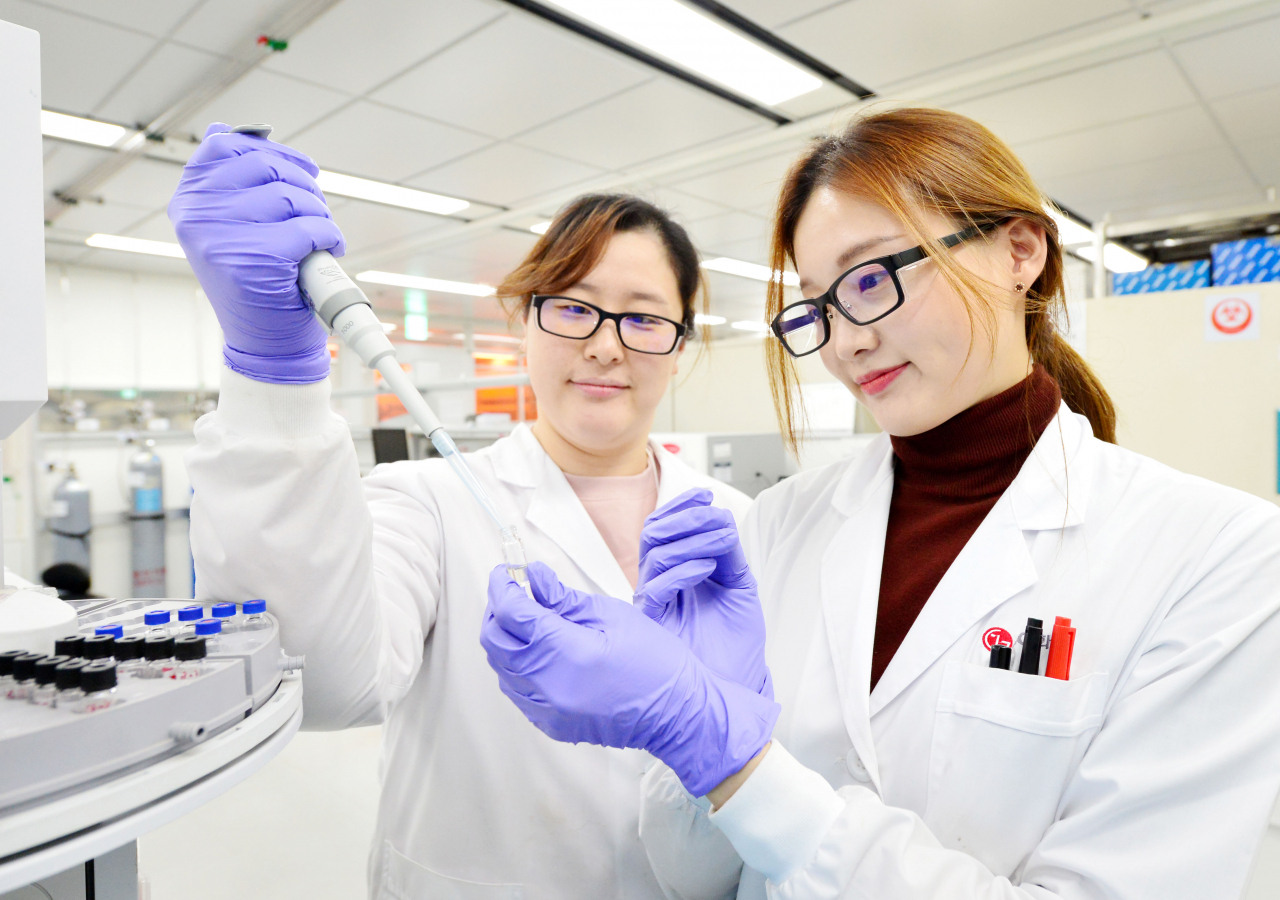LG Chem leads innovative efforts in carbon neutrality
By Song Jung-hyunPublished : Aug. 28, 2023 - 14:24

Amid mounting global calls for sustainable development, South Korea’s largest chemical firm LG Chemical has been researching ways to produce eco-friendly plastics.
Under the global campaign of achieving carbon neutrality by 2050, the international race has intensified across the petrochemical industry to reduce carbon emissions, and plastic recycling is considered the most expedient approach.
In this aspect, LG Chem has successfully secured a competitive edge over its rivals by developing the world’s first white post-consumer recycled plastic in 2019.
PCR is a type of plastic material produced from recycled plastics that customers have used and discarded. The process involves separating out and using a recyclable polymer called acrylonitrile butadiene styrene or ABS.
However, given the indiscriminate collection process and the inability to separate colors, most of the resulting material has been in black or grey hues.
Over years of research, LG Chem has successfully developed and mass-produced white ABS, allowing it to produce white PCR ABS products with physical properties equivalent to traditional plastics.
Products made from PCR ABS exhibit high quality and are visually indistinguishable from those of conventional plastics.
The following year, LG Chem developed the world’s first biodegradable plastic made of homogenous material.
Existing biodegradable materials require other plastic materials or additives to be mixed in to achieve the desired properties and flexibility.
However, the new biodegradable material developed by LG Chem is entirely derived from corn-based glucose and crude glycerol.
Most importantly, it offers mechanical properties and transparency equivalent to synthetic resins such as polypropylene.
Additionally, the new invention earned certification from DIN CERTCO -- the German-based international certification body for biodegradable materials -- that it fulfills the European industrial criteria, with over 90 percent of it able to degrade within 120 days.
Leveraging its proprietary technologies for core biodegradable substances, LG Chem currently possesses a total of 25 domestic and foreign patents related to biodegradable polymers, composites, production methods, and more.
Additionally, LG Chem has embarked on joint research and development efforts on commercializing carbon neutrality technologies, by forging partnerships with the Korea Institute of Science and Technology.
The two institutes have been working closely in the area of hydrogen energy and carbon capture and utilization technologies, with the aim of inventing a biodegradable plastic that can be made using captured carbon dioxide.
Highly functional biodegradable plastic that can be produced from converted carbon dioxide would hold a lot of market potential as it would not only reduces greenhouse gas but could also help solve plastic waste problems if commercialized.
Most recently, the two institutes successfully developed an electrochemical reactor that converts carbon dioxide into carbon monoxide at the highest level of efficiency.
Carbon monoxide is a high-value-added carbon compound used to produce alternative fuel sources such as synthesis gas and methanol, as well as various chemical materials, including plastic.
The groundbreaking electrochemical conversion technology developed by LG Chem and KIST allows for the utilization of the abundant volume of carbon dioxide present in the atmosphere, thus effectively reducing greenhouse gases.
LG Chem plans to expand its collaboration with KIST to further deliver carbon neutrality in the industry.




![[Weekender] Pet food makers bet big on ‘recession-free’ pet food market](http://res.heraldm.com/phpwas/restmb_idxmake.php?idx=644&simg=/content/image/2024/05/10/20240510050754_0.jpg&u=20240512145510)

![[Drama Tour] Romantic trip to ‘Queen of Tears’ filming spots](http://res.heraldm.com/phpwas/restmb_idxmake.php?idx=644&simg=/content/image/2024/05/09/20240509050798_0.jpg&u=20240511190213)




![[LLG] Unseen inheritance: Trauma of transnational adoption 'trickles down' to adoptees' children](http://res.heraldm.com/phpwas/restmb_idxmake.php?idx=644&simg=/content/image/2024/05/12/20240512050141_0.jpg&u=20240512163544)







